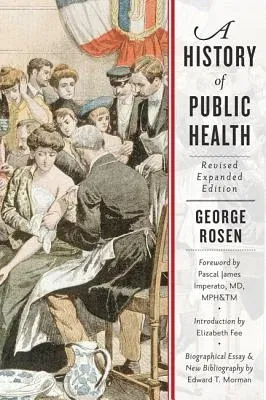George Rosen's wide-ranging account of public health's long and
fascinating history is an indispensable classic.
Since publication in 1958, George Rosen's classic book has been regarded
as the essential international history of public health. Describing the
development of public health in classical Greece, imperial Rome,
England, Europe, the United States, and elsewhere, Rosen illuminates the
lives and contributions of the field's great figures. He considers such
community health problems as infectious disease, water supply and sewage
disposal, maternal and child health, nutrition, and occupational disease
and injury. And he assesses the public health landscape of health
education, public health administration, epidemiological theory,
communicable disease control, medical care, statistics, public policy,
and medical geography.
Rosen, writing in the 1950s, may have had good reason to believe that
infectious diseases would soon be conquered. But as Dr. Pascal James
Imperato writes in the new foreword to this edition, infectious disease
remains a grave threat. Globalization, antibiotic resistance, and the
emergence of new pathogens and the reemergence of old ones, have
returned public health efforts to the basics: preventing and controlling
chronic and communicable diseases and shoring up public health
infrastructures that provide potable water, sewage disposal, sanitary
environments, and safe food and drug supplies to populations around the
globe.
A revised introduction by Elizabeth Fee frames the book within the
context of the historiography of public health past, present, and
future, and an updated bibliography by Edward T. Morman includes
significant books on public health history published between 1958 and
2014. For seasoned professionals as well as students, A History of
Public Health is visionary and essential reading.

